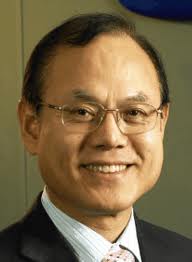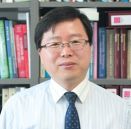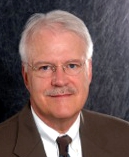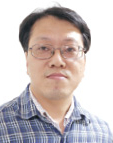The Sunday four-hour short courses presented on Sunday, June 1, offer a thorough overview of topics in the realm of information display intended for both engineers and scientists expanding into a new area, as well as for younger engineers and business people entering new fields.
Track 1
S-1
Room 1
9AM-1PM |

Geoff Walker
|
S1: Fundamentals and Future Directions of P-Cap Touch Technology
|
ABSTRACT:Projected-capacitive (P-Cap) touch technology has become dominant in the CE/IT space (up to 27 in.) and is beginning to penetrate large-format applications. The other touch technologies (resistive at 9% of forecasted 2014 unit shipments and everything else at only 2%) have become much less relevant, so this short course focuses exclusively on p-cap. Topics include basic principles, sensor configurations, ITO and ITO-replacement materials, controllers, module construction and integration, the p-cap touch system, embedded p-cap (on-cell, hybrid in-cell/on-cell, and in-cell), multi-touch, OS support, middleware, large-format p-cap, active stylus, and future trends and directions.
Geoff Walker's Bio: : Geoff Walker is currently a Senior Touch Technologist at Intel, where he works closely with Intel business groups, engineering teams, and Intel Capital to formulate and drive cross-Intel strategy on touch-related technology and product development. Geoff has worked at Hewlett-Packard, GRiD Systems, Fujitsu Personal Systems, Handspring, Elo Touch Systems, and NextWindow. He also ran his own consulting firm (Walker Mobile, LLC) for 7 years. He has published more than 65 magazine articles on touch screens, mobile displays, and mobile computers and has presented at more than 30 display, touch, and emerging-technology conferences in the US, Japan, Taiwan, and China. Geoff is a very active member of SID, speaking at multiple SID conferences, serving on the SID Symposium Touch Paper-Selection Subcommittee, and serving as the Guest Editor for Touch and Interactivity for SID's Information Display magazine since 2007. He is also a member of IEEE and ACM. Geoff holds a B.S. degree in electrical engineering and a B.S. degree in English from the Polytechnic Institute of New York University and has completed all the coursework for an MBA in Marketing from the Leonard N. Stern School of Business at New York University.
|
Track 2
S-2
Room 5
9AM-1PM |


Ho-Kyoon Chung & Jang-Hyuk Kwon
|
S2: Fundamentals of OLEDs
|
ABSTRACT: The commercial production of OLED TV and flexible OLED devices has just begun in 2013 with great excitement. However, the high price and limited availability of both OLED TVs and flexible OLED devices has disappointed many consumers and a pessimistic view on the future of OLED technology has recently been arisen. Professor Chung will review the technical challenges of large-sized OLED TV and flexible OLED devices and will discuss the future opportunities of OLED technology. Organic light-emitting diode (OLED) technology has made strong advances for display and lighting applications over the past few years. Professor Kwon will address the basic structure of OLEDs, their operational principles, fluorescent and phosphorescent materials, fabrication methods, evaluation technologies, top-emission technologies, tandem technologies, etc. In addition, the current technical status of OLED materials and devices will be discussed.
Dr. Chung's Bio: Dr. Chung is currently Chair Professor of Sungkyunkwan University. He was previously a full-time Advisor and Executive VP for Samsung SMD, which is dedicated to the R&D and manufacturing of AMOLED products and mobile LCD modules. Prior to that, he was the Executive Vice-President and CTO of Samsung SDI and head of Samsung SDI Corporate R&D Center from 2006 to 2008. Dr. Chung led the R&D for Active-Matrix OLED (AMOLED) since 2005 and is a world leader in bringing the AMOLED technology into the commercial market. Prior experience includes Managing Director of Memory Product Engineering and Manufacturing Technology Center at Samsung Electronics, Semiconductor Business, from 1988 to 1999.
Dr. Chung received his B.S. degree in electronics engineering in 1973 from Seoul National University, M.S. degree in 1977 from Case Western Reserve University, and Ph.D. degree in electrical engineering in 1981 from the University of Illinois at Urbana-Champaign.
Professor Kwon's Bio:
Professor Jang Hyuk Kwon received his Ph.D. degree in chemistry from the Korea Advanced Institute of Science and Technology in 1993. He worked for more than 10 years at Samsung SDI R&D Center as the key display researcher. In 2005, he moved to Kyung Hee University as a professor in the Department of Information Display. He has over 70 published papers and over 100 filed/granted patent applications in the field of organic semiconductor devices.
|
Track 1
S-3
Room 1
3PM-7PM |

James Larimer
|
S3: Fundamentals of Color Management for Display and Lighting
|
ABSTRACT: Color standards are used to specify the colors of paints, fabrics, dyes, pigments, colors captured and reproduced by cameras and displays and to gauge the quality of artificial light. All standards used today are traceable to the CIE 1931 XYZ Standard Observer and the photopic luminosity function that preceded it. This short course will provide the foundation for reproducing color on displays.
Speaker Bio: James Larimer has over 40 years experience in the field of color vision and electronic displays. He received his Ph.D. in experimental psychology from Purdue University and was a Post-Doctoral Fellow at the University of Michigan’s Human Performance Center. He was a Professor of Psychology and Department Chair at Temple University, served as the Director of the Sensory Physiology and Perception Program at the National Science Foundation, and was a Senior Scientist at NASA’s Ames Research Center. He is currently retired and serving as a consultant in the field of imaging and displays.
|
Track 2
S-4
Room 5
3PM-7PM |

Toshio Kamiya
|
S4: Fundamentals and Applications of Active Matrix Devices and Oxide TFT
|
ABSTRACT: Amorphous-oxide semiconductors have large electron mobilities > 10 cm2/(V-sec) and are employed for thin-film transistors in high-resolution LCDs and large-sized OLED displays. This short course will first provide a review of the current applications of amorphous-oxide semiconductor devices and displays and then will explain the origin of the large mobility and the material design of amorphous-oxide semiconductors in relation to its electronic structure and chemical composition. Practical issues including stability will also be discussed in relation to the defects and impurities along with their characterization methods.
Dr. Toshio Kamiya's Bio: Toshio Kamiya began his research carrier as an assistant professor in the Department of Inorganic Materials at the Tokyo Institute of Technology, Tokyo, Japan, in 1991, and moved to the Interdisciplinary Graduate School of Science and Engineering in 1996. He received his Ph.D. degree in materials science from the Tokyo Institute of Technology in 1996. He spent 2 years at the Microelectronics Research Centre, Cavendish Laboratory, at the University of Cambridge as a visiting scholar from 2000 to 2002. He became an associate professor in 2002 and a full professor in 2010 in the Materials and Structures Laboratory at the Tokyo Institute of Technology. His field of research includes exploration, materials design, and device applications of new functional oxides. He has published about 300 scientific papers. He was awarded the Tejima Research Award (Invention) in 2011, the Young Scientists' Prize by MEXT in 2007, the Advanced Technology Award by the Fuji-Sankei group in 2005 among others.
|